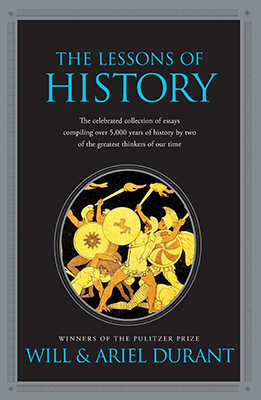
Lessons of History
The Lessons of History
“The Lessons of History” by Will and Ariel Durant is a concise exploration of the patterns and themes that emerge from the study of history. Drawing from their extensive work in “The Story of Civilization,” the Durants distill key insights about human behavior, society, and the forces that shape historical events.
Summary:
1. Human Nature: The Durants emphasize that human nature remains constant throughout history. They argue that people’s desires, ambitions, and fears drive historical events, making the study of history a reflection of humanity itself.
2. War and Peace: The book discusses the inevitability of conflict, suggesting that war is a recurring aspect of civilization. The authors explore the causes of war, including economic interests, power struggles, and national pride, while also highlighting the cyclical nature of war and peace.
3. Economics and History: The Durants examine the influence of economic factors on historical development. They argue that material wealth, class struggle, and economic systems play crucial roles in shaping societies and their trajectories.
4. Religion and Morality: Religion is portrayed as a fundamental force in human history, providing moral frameworks and unifying communities. The Durants discuss the impact of religion on culture, politics, and social values.
5. Progress and Decline: The authors consider the rise and fall of civilizations, positing that while societies may progress, they are also prone to decline due to factors like corruption, complacency, and loss of civic virtue.
6. Lessons for the Future: The Durants conclude with reflections on the lessons history can teach us. They stress the importance of understanding past mistakes to avoid repeating them, advocating for a deeper awareness of historical patterns in contemporary society.
Overall, “The Lessons of History” provides a thoughtful synthesis of historical insights, encouraging readers to reflect on the lessons of the past as they navigate the complexities of the present and future.
